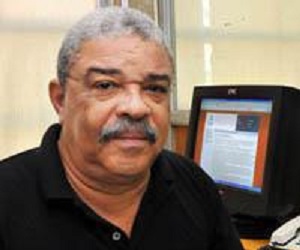 June 30, 1961 is indelibly recorded in the history of Cuban culture as the day when Fidel delivered his indispensable Words to intellectuals. On that same date, in 2019, the Union of Cuban Writers and Artists (UNEAC) Ninth Congress was being closed by a large group of Cuban writers and artists – elected by their colleagues across the country and, in an overwhelming majority, successors to those who participated in the historic meeting with the leader of the Revolution.
June 30, 1961 is indelibly recorded in the history of Cuban culture as the day when Fidel delivered his indispensable Words to intellectuals. On that same date, in 2019, the Union of Cuban Writers and Artists (UNEAC) Ninth Congress was being closed by a large group of Cuban writers and artists – elected by their colleagues across the country and, in an overwhelming majority, successors to those who participated in the historic meeting with the leader of the Revolution.
With the topics debated, the agreements adopted and, above all, the interiorization of revitalized arguments to carry out intellectual work in our complex social environment, we honored Fidel’s words, in their just measure, commemorating that foundational event, and at the same time were honored and encouraged to share a day with President Miguel Díaz-Canel, during which he defined concepts and outlined crucial challenges in the field of culture, with uncommon clarity.
His words placed the essence of Fidel’s words in a new and updated context, valuable not only for Cuban writers and artists, but for broad sectors of our society, who are aware that culture builds and saves, and that its content and ways of functioning are decisive in fostering the ethical and aesthetic values to which we aspire.
Over the year since the Congress, follow-up on proposals continued non-stop, even though the health emergency imposed an unforeseen hiatus these last few months.
Moving from the identification of problems to the search for solutions has been addressed in dialogue between the highest leadership of the state and the government, and representatives of agencies, cultural institutions and UNEAC. At this point, paths have been charted to create a vision of a model of institutions that respond fully to the imperatives of cultural policy and its projection into the ever-growing and influential media spectrum.
This implies, on the one hand, not only a leap in quality in the integration of programs and proposals, but also urgently needed changes in mentality in the way such processes are conducted; and on the other, debate and decision-making with full but differentiated implementation of national policies, since cultural life takes place and is decided locally.
The initial foundations have also been laid to address one of the demands of writers and artists, reflected in Díaz-Canel’s observations regarding the urgency of rethinking structures and roles of enterprises in the sector, particularly, but not only, those in the music industry. Only in this way can the premises be established to face the challenges posed by the President when he said: “Why haven’t we, in Cuba, managed to insert, disseminate and export the creations of those who work within the country and, instead, promote and replicate what the market has already produced and returns to us wrapped in its rules? What do our institutions need to make our most authentic cultural creations flourish? (…) Culture can and must contribute to the country’s Gross Domestic Product, and this is the purpose its companies.”
UNEAC’s contributions to the National Program against Racism and Racial Discrimination, launched in November last year, and to the re-launching of the Culture and Tourism Commission, which involves the ministries of both sectors, evidence the participatory vocation of Cuba’s intelligentsia.
As the country moves toward a new normal, proposals relating to educational institutions and programs, community cultural work, problems linked to the art market and cultural industries, gender equity and the revitalization of international cultural relations must be substantial.
Of course, artistic and literary creation and its promotion will be in the foreground, which is the raison d’être of UNEAC. This production has shown itself to be diverse and complex, but above all committed to the destiny of the nation, in times like these, when imagination has overcome limitations and found alternatives to win over audiences. A production that demands even greater rigor, excellence, relevance, audacity and penetration power.
Díaz-Canel’s concluded his words at the UNEAC Congress, saying: “Do not let this Congress die. Work to make a reality of everything you understand can contribute to the good of the nation, to its spirituality, to the future that those who have not been able to destroy us want to deny us.”
(Source: Granma)
The Congress is alive.